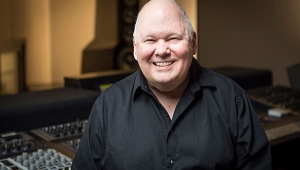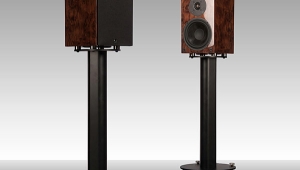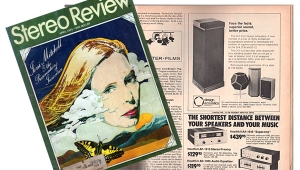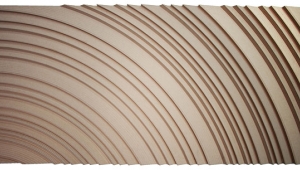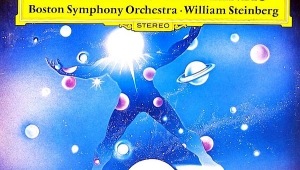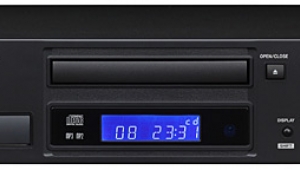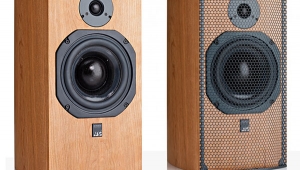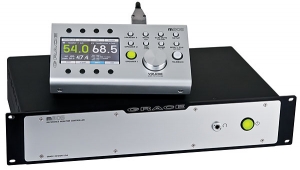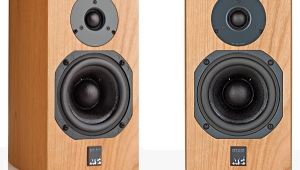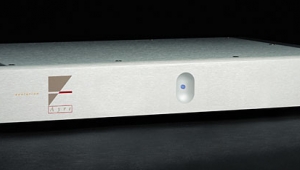| Columns Retired Columns & Blogs |
The Fifth Element #17
Poetry, painting, and sculpture must lie, but they should lie with grandeur, charm, and splendor.—Napoléon I
Footnote 1: There is no reason why it could not have been; all the technology was already there, waiting to be applied.—John Marks
Napoléon seems to be saying that lying—or, to use another word, distortion—is necessary for art. Indeed, he might even be saying that the act of telling intentional and crafty lies is, in itself, that which makes art art. I am certain that, had sound recording been invented in his time (footnote 1), Napoléon would have been fascinated by its potential political and social uses, and perhaps even included it in his list of arts that must tell lies.
After all, just as the sculptor of a large statue that will be viewed from lower than the center of its height (such as the Lincoln Memorial, or Michelangelo's David) must take the viewer's perspective into account (and lighting and shadow effects as well), and a painter may depart from strict perspective in order to emphasize character or action, we pretty much expect that a certain amount of lying—in the form of making things sound more immediate, or richer, sweeter, airier, punchier, or "phatter" than they really are—is going to happen while recordings are made. Certainly pop recordings.
The renowned mastering engineer Bob Ludwig once commented to me that dynamic compression was the "soul" of rock. Though taken aback at the time, I have since come to understand that what he meant was that, just as vibrato is a fundamental characteristic of classical string and vocal music, a certain amount of added dynamic punch is necessary for rock to speak in its own idiom.
Lying in the service of grandeur, charm, and splendor is not only permissible, it is somewhat inevitable. Microphones just do not hear the way our ears do. Even a classical music recording that strives to convey the acoustical as well as the musical truth runs smack into the problem that the reality our ears encounter in a performance hall is so different from what they encounter in a playback room.
I would have strong objections to a classical recording of, say, an opera singer being made with compression and reverberation and equalization, because vocal tone production is at the core of the opera singer's art. (The unwritten but sacred bargain between producers of classical-music recordings and lovers of classical music is that the former are documenting, not creating, a performance.) But I do not have any problem with the producer of a classical vocal recording selecting a microphone that synergizes with (okay—flatters) a particular singer's voice, just as I don't have any problem with making recordings in gorgeous acoustical environments that flatter music-making. I don't even have a problem with judicious solo miking of a vocal or instrumental soloist, to compensate for the lack of the visual clues we get at a live performance. But the operative word is "judicious." What too often happens is that the soloist is larger and louder than ever he or she would be in real life.
Not to go off on a tangent, but here's a question I think is worth asking: Is one reason that the popular record business is in a tailspin that popular musicians and the people who record them have gotten so good at lying—and at telling lies about lies—that the end results have so little to do with reality that they are not only unrewarding, but even difficult to listen to? Just compare the dynamic range of Joni Mitchell's Court and Spark or Neil Young's Harvest with the latest output from, oh, take any band at random, but you can't go wrong starting with the Foo Fighters. If postmodernism has deflated concepts such as Napoléon's "grandeur, charm, and splendor," is all that is left the choice between "loud" and "louder"?
Every bit as important is the fact that while most of us are willing to allow our recordings to lie somewhat (but not too much), in general we seem to want our audio systems to "tell the truth." At least, that is one flavor of widespread audio orthodoxy. I don't entirely agree—I try to listen to music-making, not master tapes. If the choice in audio systems is between a ruthless accuracy that lets you know everything that is wrong with a recording, and a tactful evasion that lets you enjoy what is right with the music-making, I'd rather be happy and guilty than miserable and morally superior. But I also like to try to keep track of which lies are being told by the recording and which by the playback setup.
So, lying as defined by Napoléon is inevitable and perhaps even, on occasion, praiseworthy. But how much lying is enough, and how much is too much?
I'm not sure that that is an ultimately answerable question. But I do think that it is very important that we consciously work to improve our ability to make sense of what we hear from our stereo systems and recordings. Unless we understand enough—in terms of sonics and music—of what our stereo systems are doing, we have to some extent wasted our money, because our stereos are speaking to us in a language we don't adequately understand. That language is not only musical, it consists also of sound and the manipulation of sound.
Becoming better-educated, conscious, active listeners will help us in at least two ways. First, the only defense against being taken in by "too much lying" in recordings is to become more discerning and thoughtful listeners.
Footnote 1: There is no reason why it could not have been; all the technology was already there, waiting to be applied.—John Marks
- Log in or register to post comments
